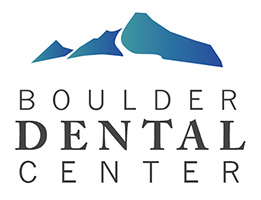Oral Health
Dentists: Doctors of Oral Health
Americans today frequently have superb oral health leading to the ability to maintain natural teeth throughout their lives. This is not however the case for all. For example, cavities remain the most prevalent childhood chronic disease. Individuals also do not attend dental appointments as frequently as needed to ensure good oral hygiene and receive preventative dental care.
Mistakenly, many individuals believe they only need to see the dentist when in pain or if something is wrong. This is however not the case if you want to maintain oral health and a healthy smile. Preventative care can save future pain and money at the dentist! Dental visits can vary from being routine cleanings to complex dental procedures.
The Dentist’s Role
Dentists are doctors who specialize in oral health.
Their responsibilities include:
- Diagnosing oral diseases.
- Promoting oral health and disease prevention.
- Creating treatment plans to maintain or restore the oral health of their patients.
- Interpreting x-rays and diagnostic tests.
- Ensuring the safe administration of anesthetics.
- Monitoring growth and development of the teeth and jaws.
- Performing surgical procedures on the teeth, bone and soft tissues of the oral cavity.
- Managing oral trauma and other emergency situations.
- Diagnosing oral diseases.
- Promoting oral health and disease prevention.
Dentists’ oversight of the clinical team is critical to ensuring safe and effective oral care. Even seemingly routine procedures such as tooth extractions, preparing and placing fillings or administering anesthetics carry potential risks of complications such as infection, temporary or even permanent nerve damage, prolonged bleeding, hematomas and pain.
More than Just Teeth and Gums
Dentist’s have a large scope of care provided to patients that expands beyond the teeth and gums. This includes ensuring healthy teeth and gums as well as healthy neck and jaw, muscles of the head, the tongue, salivary glands, and other areas. Dentists typically examine the teeth and gums during typical comprehensive examinations. However, they also scan for swelling, lumps, ulcerations and any other abnormalities. Furthermore, when appropriate, dentists perform diagnostic testing for infectious or chronic diseases, biopsies, and screening tests for oral cancer.
In addition, dentists can spot early warning signs in the mouth that may indicate disease elsewhere in the body. Dentists’ training enables them to recognize situations that warrant referring patients for care by dental specialists or physicians.
Why Oral Health Matters
Recent studies have shown that oral health can be linked to other health conditions such as diabetes and heart disease. Therefore, oral disease prevention can make positive impacts of other health risks.
It is highly recommended by many, including the American Dental Association, that children are taken to the dentist by their first birthday to ensure establishment of a dental “home”. The establishment of early dental care can ensure the dentist can inform parents of good dental hygiene, diagnose and treat any early diseases and ensure the preventative services are delivered from an early age. Starting young improves the maintenance of optimal oral health for the lifetime of patients.
